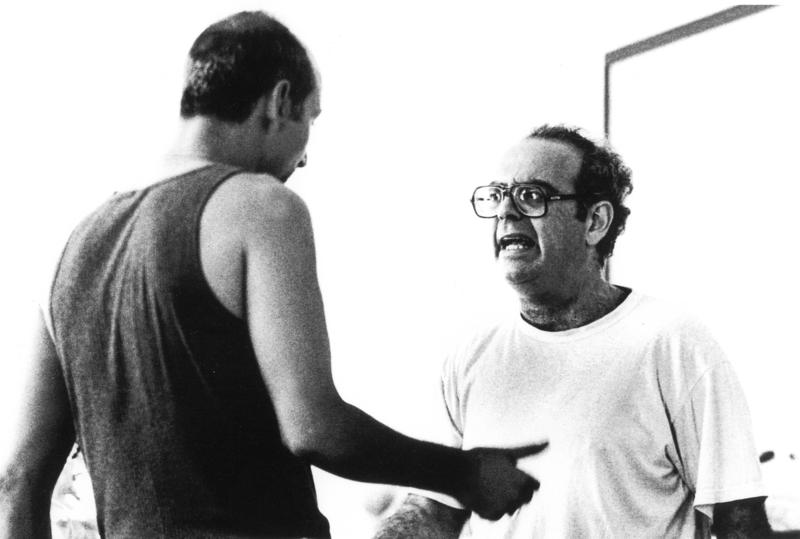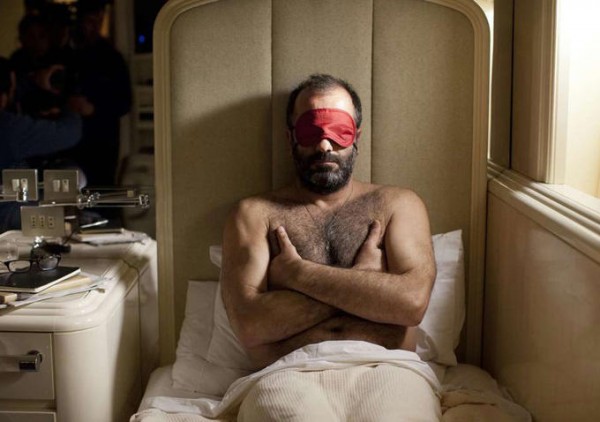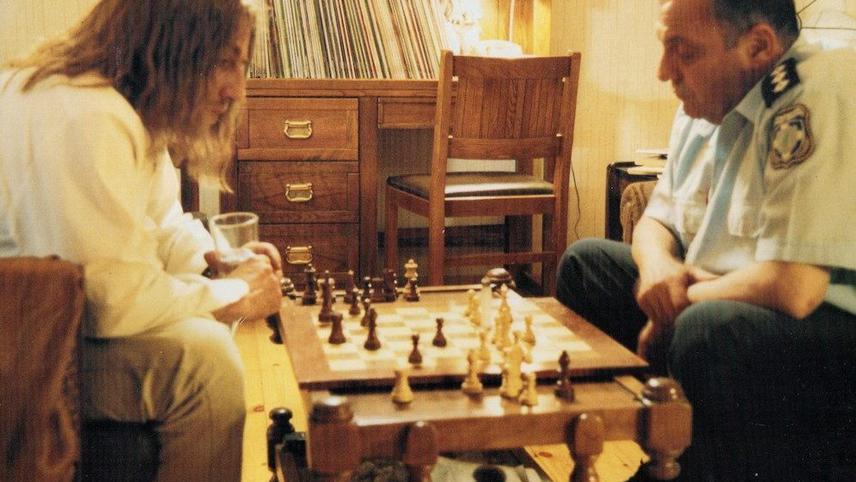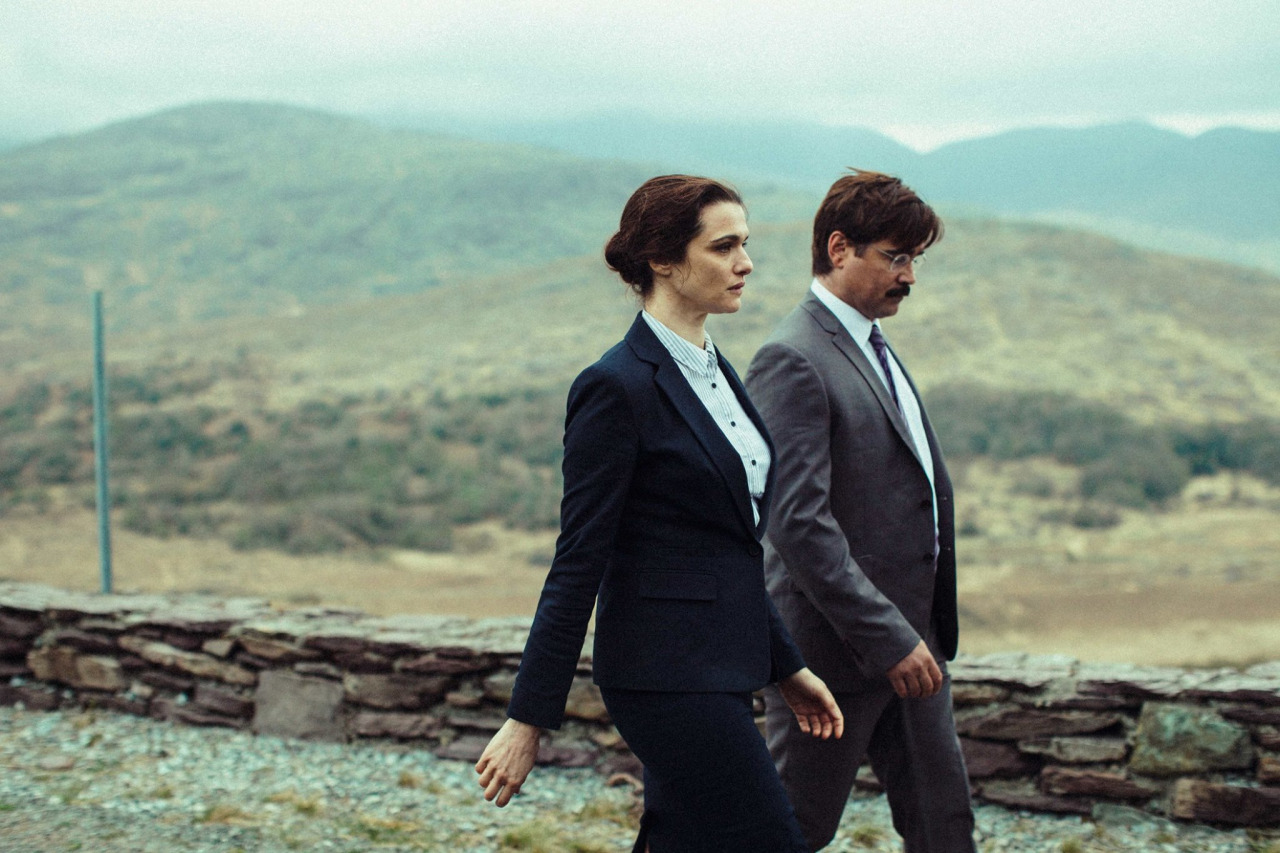7. Matchbox (Yannis Economides, 2002)

The film follows a hot summer day in the life of 50-year-old Dimitris discussing his professional ideas and plans and fighting with his family. Through constant fighting and shouting, heavy swearing, and claustrophobic cold-colored shots inside a small apartment where everyone is sweating from the heat, this simple yet compelling film causes the viewer to suffocate, getting its point across in an almost experiential way, similar to reading Kafka’s “The Castle.”
As the years went by, Economides’ film has grown into a symbol. Always topical, charming in its own peculiar way, “Matchbox” is an insuperable cinematic work of art that not even the director himself could easily exceed. Sixteen years after it was released and with various efforts to walk the way Yannis Economides led, “Matchbox” remains probably the most accurate representation of the Greek middle class family, even in 2018. (And that may not necessarily be a good thing.)
6. The Sentimentalists (Nicholas Triantafyllidis, 2014)

The film follows two young men working for ‘The Master,’ a smuggler and loan shark who lives in a mansion away from the city center with his daughter and traffics his antiquities in hearses around Athens. Hermes and Giannis take care of The Master’s dirty jobs, but their violent yet balanced everyday lives are disturbed when both of them make what turns out to be a fateful mistake: they fall in love with two “forbidden” women.
Nicholas Triantafyllidis masterfully creates a tribute to cult films of the past, with its neo-noir portrayal of a decadent Greek underworld, its deliberately grotesque aesthetics, and the marvellous multidimensional musical soundtrack by Alexander Voulgaris (as The Boy) generating a uniquely nostalgic atmosphere. “The Sentimentalists” is really a film about love and “old school” romantics lingering in a hardcore world that has no room for hardcore romance.
“The Sentimentalists are creatures of the past century who vainly attempt to survive in our modern times.” – Nicholas Triantafyllidis
5. Chevalier (Athina Rachel Tsangari, 2015)

Six men are on a fishing trip on a luxurious yacht, when the yacht has some kind of damage, and until it is repaired they decide to play a game of designating the “best” man among them who will receive a Chevalier ring as a winner’s award. In order to do that, they will compare and evaluate each other on literally anything, from their efficiency in various tasks to the way they sleep and stand to the size of their erections.
“Chevalier” is an edgy comedy that comments on male vanity, on their desire to be the best, the alpha male, or at least not the worst. In a Western society where superiority is equal to acceptance, men are raised to be competitive and ambitious, and pressure is on them to be successful and charming. Athina Rachel Tsangari’s film captures with humour and empathy the insecurity that lies underneath men’s dominant facade, intelligently managing to make a film with, about and for men that also speaks about women.
4. Dogtooth (Yorgos Lanthimos, 2009)

Three young adult children live isolated in their parents’ house in the suburbs, without almost any contact with the outside world, as, according to their parents, a child is only ready to leave the house when their dogtooth falls out. Their reality consists of what their parents construct as reality for them, with anything “dangerous” being distorted into something acceptable.
“Dogtooth” is an unconventional, multidimensional psychological metaphor for family archetypes – not just for the Greek family, but for any family. The three children live in an Eden-like house, with an authoritative God-like father with a potential psychoanalytical connection to Jacques Lacan’s “Law of the Father” and its subsequent role in the child’s later psychosocial development, with references to Carl Jung’s paternal and maternal archetypes and Ivan Pavlov’s classical respondent conditioning as a learning procedure. Ultimately, the film poses questions about the subjectivity of reality, the power of familiarity versus the power of freedom, and the relationship between instincts and learned behavior.
With his film, which gave birth to the Greek Weird Wave, Yorgos Lanthimos raises the world’s attention to modern Greek cinema, creating nothing less than a masterpiece worth watching at least once.
3. The King (Nikos Grammatikos, 2002)

Vangelis a former drug addict and dealer who is released from prison and decides to move to his grandfather’s abandoned house in New Paradise, a small village in the south of Greece, away from his old life and social circle in the city in order to stay clean and start new. But the locals are not very welcome to strangers and will soon start looking for ways to kick him out of the village.
“The King” is a movie based on real events that took place around the mid-1990s. Director Nikos Grammatikos used information from the press and Vangelis Farmakoris’ lawyer to create this part-truth part-fiction all-time great picture about xenophobia in its broader sense, social exclusion, people’s fear towards the unknown, and how society, by treating somebody as what is considered a “problem,” can actually turn them into exactly that, creating a vicious cycle.
The characters in the village are carefully chosen to symbolically illustrate a mentality one can find in the country or the city, and Vangelis Mourikis as Vangelis gives probably one of the greatest performances of his career, all resulting in an extremely powerful film.
2. Thread (Alexander Voulgaris as The Boy, 2016)

“Thread” is a psychoanalytic fantasy thriller about the thread that connects the lives of Niki who is a political activist dedicated to Resistance and Lefteris, her son. Set in two different time periods, it follows the separate struggle of the two characters portrayed both by the same actress, a breathtaking Sofia Kokkali who deservingly received an award for her performance, a struggle to fulfill their roles or escape them. Is the umbilical cord holding them together a point of reference for each other, a life-giving addiction or perhaps a violent restraint? And how does one liberate themselves?
Director and musician Alexander Voulgaris (making the film as The Boy) constructs a dystopian but fragile world, an allegorical tale of “weaning,” of the inheritance we carry but didn’t choose; of the vague thin line between past and present, between self and others; of a bloodthirsty city that is “killing” its people, a city you cannot decide whether to love or hate; of the freedom that restrains us; and of the harsh process of entering adulthood.
The film has been called offbeat, avant-garde and experimental in terms of traditional film structure and storytelling, but the creator wasn’t experimenting at all: he knew exactly what he wanted to do. And the outcome is a cinematic masterpiece we rarely have the chance to watch in Greek cinema.
1. The Lobster (Yorgos Lanthimos, 2015)

In a dystopian world where only couples live in The City, David, after his wife leaves him, is compulsorily transferred to The Hotel, a place where single people stay for a period of 45 days in order to find themselves a romantic partner. If they don’t succeed, they will be turned into an animal of their choice and David’s choice is a lobster. But the strictly organized life there urges him to escape and go live in The Woods alongside those who resist the system, only to find out that the “loners” have their own rigid ordinance to which everybody has to act accordingly.
Being an allegory about love and loneliness, “The Lobster” discusses the desperate seeking for companionship in a modern world where people are defined by their ability or inability to form socially acceptable relationships. It explores the conversation between a natural need to be loved and the obsessive pursuit for identity through romantic relationships, between independent existence and the sense of belonging, between respectful coexistence and resistance, between the established order and more veiled aspects of authority.
Technically not exactly a Greek film, but a Greek, Irish, French, British and Dutch production done by a Greek director and a Greek screenwriter, with an explicit cast of international actors on board, The Lobster is a gem not only for the Greek but also for the World cinema, proving why Yorgos Lanthimos is considered to be among the most precious Greek directors working today.
Author Bio: Danae is a cinephile from Greece. She studied Psychology and loves watching movies.